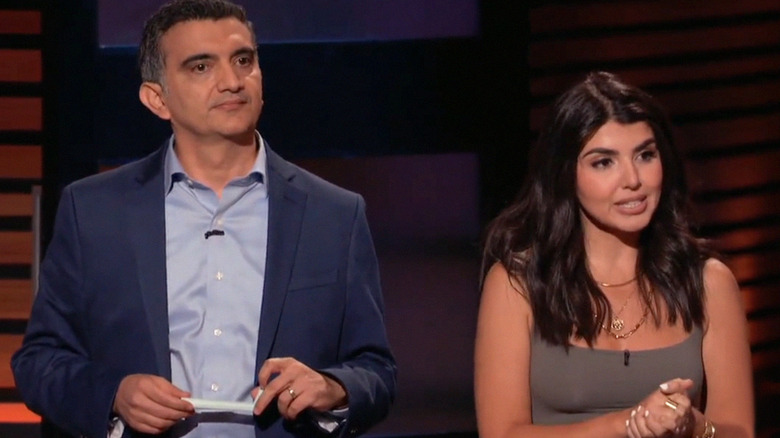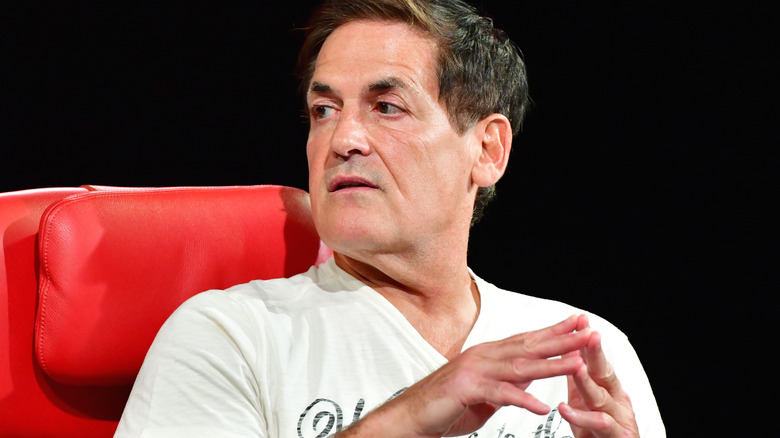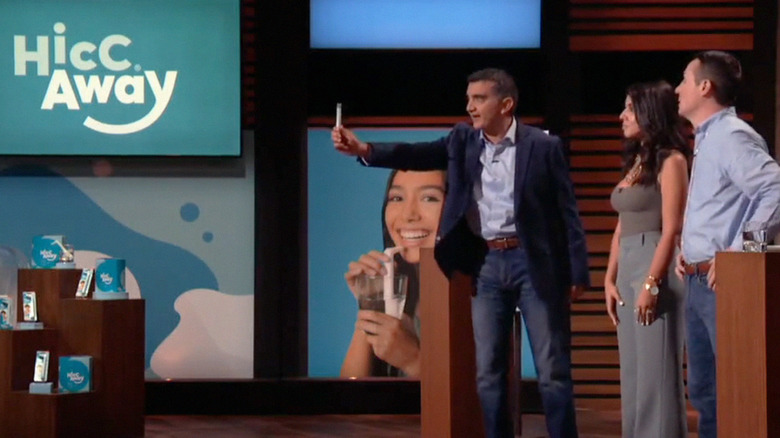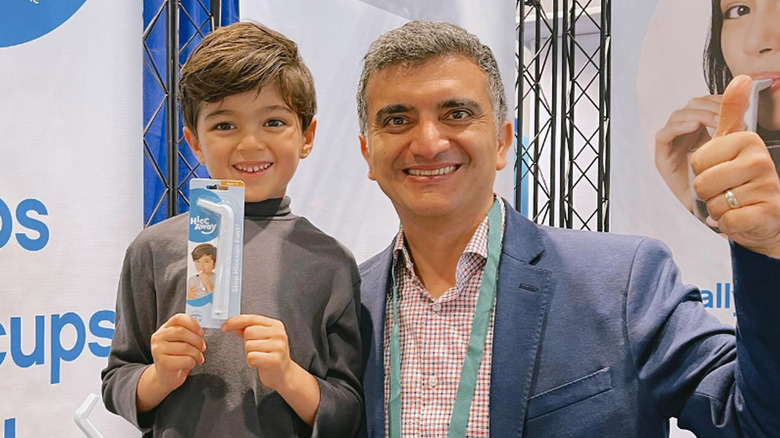Whatever Happened To HiccAway After Shark Tank?
"Shark Tank" Season 13, Episode 12 premiered on January 21, 2022 and features a product called the HiccAway. Presenting it to the panel of Sharks is neuroscientist Dr. Ali Seifi alongside co-owners Amanda Azarpour and Victor Feldberg.
They begin by demonstrating various home remedies people oftentimes use to attempt to cure a case of the hiccups, all of which are implicitly ineffective compared to their invention. Dr. Seifi then reveals that he engineered the HiccAway to be the most scientifically effective cure for the hiccups possible. The HiccAway itself is a wide, straw-shaped device engineered such that sipping water with it triggers the diaphragm to respond in a manner that cures hiccups almost every time. While not entirely foolproof, Seifi cites a study that credits the HiccAway with remedying 90% of participants' hiccups.
A couple years prior to "Shark Tank," Seifi successfully funded the HiccAway on Kickstarter before launching the product in July of 2020. As of the episode's filming, it was already available in some Walmart and HEB stores. Seifi and co., then, explain that they're simply looking to expand the scope of their business based on its proven track record.
HiccAway secured a sizable investment on Shark Tank
After hearing Dr. Ali Seifi, Amanda Azarpour, and Victor Feldberg's pitch, some of the Sharks share that they're uninterested in committing to the HiccAway's future. Lori Greiner, for example, doesn't think demand for a hiccup cure is high enough to support sustained sales.
Mark Cuban, however, is a fan. He proposes a $250,000 investment in exchange for a 20% share in the company. Meanwhile Kevin O'Leary thinks that the biggest obstacle to the product catching on is belief among consumers in its efficacy. Nevertheless, he offers $250,000 for 15% equity. Seifi and co. decide that they would rather work with Cuban than O'Leary and attempt to negotiate the overall percentage of the company they would have to give up for his involvement. In the end, Cuban is unwilling to budge, and Seifi and his companions agree to $250,000 in exchange for Cuban receiving a 20% stake in HiccAway.
HiccAway grew after appearing on Shark Tank
While some "Shark Tank" deals end up falling through after filming, according to a profile of Dr. Ali Seifi on The Atlantic, he and his cohorts successfully closed their deal with Cuban. Furthermore, at the time of the article's publication roughly a year after HiccAway's TV appearance, the company had grossed a total of $1 million. As of their "Shark Tank" presentation, HiccAway had earned $300,000, so Cuban's investment and the product's TV exposure together seem to have successfully propelled the HiccAway to the next level.
Among some of the company's more notable milestones in the wake of "Shark Tank" was the circulation of a TikTok video by user VickieComedy. She jokes that the fact she never developed a case of the hiccups after purchasing the product is testament to its efficacy — and while not quite a sincere endorsement, the video nevertheless amassed more than 34,000 likes and put the HiccAway in front of plenty of new eyeballs.
Given that it not only remains in business but has spawned at least one semi-viral video, then, HiccAway serves as a positive example of "Shark Tank" successfully fostering a company's growth.
HiccAway remains in business and widely available to this day
The official HiccAway website is still online and active, offering visitors the ability to purchase its flagship product either à la carte or in a four-pack. The only other item sold is an inexpensive clip designed to hold the HiccAway in order to ease storage. So, while the company hasn't added any significant new products to its lineup as is sometimes the case following success on "Shark Tank," continued sales of its primary offering appear to be keeping the company in good shape.
Addressing the very issue Kevin O'Leary proposed before offering to invest in HiccAway, the product's website likewise includes extensive information about the science backing its hiccup-curing ability. Separate sections, for example, are dedicated to proving that medical professionals can verify the HiccAway works, explaining its precise mechanics, and responding to common inquiries.
The HiccAway, then, appears to be thriving. While its website both justifies the product's existence and offers customers the option to purchase one or more directly, it's also available through major online retailers like Amazon and Kroger among plenty of familiar, everyday, at-home health products.



